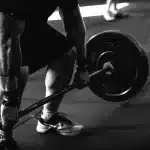10 ESSENTIAL PROTEIN TIPS
Muscle growth, also known as muscle hypertrophy, is more than just the result of regular exercise. It’s a complex process influenced by various factors, and diet – particularly protein intake – plays an integral role.
Proteins are the building blocks of our muscles, providing the essential amino acids needed to repair and build new muscle tissue after workouts. However, it’s not just about how much protein you consume, but also when and how you consume it.
This comprehensive guide will provide you with ten key tips on leveraging protein for optimal muscle growth. Whether you’re a bodybuilder aiming to maximize gains or a fitness enthusiast seeking to tone up, these insights will equip you with the knowledge to create a protein strategy tailored to your muscle growth goals.
Let’s dive in to better understand the significant role protein plays in muscle growth.
A consistent and structured protein intake throughout the day can be a game-changer for muscle growth. Consuming 4-6 protein-enriched meals daily ensures a regular supply of amino acids, the building blocks of muscles. Striving for 20-40 grams of protein per meal provides a solid foundation for muscle growth and repair.
It’s crucial to remember that not all protein sources are created equal. The bioavailability, or how efficiently our bodies can use the protein, varies depending on the source. Animal-based proteins like meat, eggs, and dairy are typically more bioavailable than plant-based proteins. However, by incorporating a variety of plant-based proteins and eating a balanced diet, you can still meet your protein needs if you follow a vegetarian or vegan lifestyle.

2. Increase Protein as You Age
Aging is a natural process that brings changes in our bodies, including an increased need for protein. With age, our muscle mass tends to decline, a condition known as sarcopenia. This makes it essential for older individuals to increase their protein intake to counteract this natural decline and to support the maintenance and growth of muscle mass.
The type of protein consumed is also crucial. As we age, our bodies may not process or absorb protein as efficiently. Therefore, choosing high-quality protein sources can help meet the increased protein demand.

Subscribe our newsletter 💌
Stay at the forefront of nutritional innovation - sign up for our monthly newsletter and be the first to learn about new products and exciting updates from Integrity Food Co!
3. Space Out Your Protein Consumption
While it’s essential to consume enough protein, the timing and distribution of protein intake throughout the day also play a significant role in muscle growth. Studies suggest that spacing protein consumption out into several meals throughout the day allows for better utilization of the protein ingested, promoting greater muscle synthesis. By providing a steady flow of amino acids, you create an anabolic environment, which is conducive to muscle growth.

4. Post-Workout Protein
The period immediately following a workout, often referred to as the “anabolic window,” is a critical time to consume protein. After a workout, your muscles are primed to absorb nutrients and begin the process of repair and growth. By consuming protein as soon as possible after your workout, you supply your muscles with the amino acids they need to start this process, promoting quicker recovery and more significant muscle growth.

Subscribe our newsletter 💌
Stay at the forefront of nutritional innovation - sign up for our monthly newsletter and be the first to learn about new products and exciting updates from Integrity Food Co!
5. Protein Consumption around Training
Consuming protein both before and after your workouts can further enhance muscle growth. A pre-workout protein meal provides the necessary amino acids during your training session, reducing muscle protein breakdown.
Following this with a post-workout protein intake ensures a continued supply of amino acids, maximizing the protein synthesis response. If you’re practicing this method, the post-training meal can be delayed slightly, up to about 2 hours after training.

6. Protein Fix for Uncertain Meal Times
In today’s fast-paced world, it can be challenging to stick to regular meal times. If you find yourself unsure of when your next meal will be post-training, a simple solution is to consume a protein shake soon after your workout.
Protein shakes are quick, convenient, and provide a concentrated source of protein that kick-starts muscle repair and growth. Follow this with a solid meal around 2.5 hours later to continue the supply of nutrients to your muscles.

7. Pre-Sleep Protein for Muscle Growth
The benefits of protein for muscle growth don’t stop when you go to sleep. Consuming 40 grams of protein before sleep can help enhance overnight muscle protein synthesis, contributing to the repair and growth of muscles.
This strategy takes advantage of the fact that sleep is the longest period of fasting our bodies undergo. By consuming protein before sleep, we ensure a steady supply of amino acids to our muscles during this critical period

Subscribe our newsletter 💌
Stay at the forefront of nutritional innovation - sign up for our monthly newsletter and be the first to learn about new products and exciting updates from Integrity Food Co!
8. Consistency and Realistic Goals
Consistency is a critical element of any successful muscle-building strategy. Instead of obsessing over the exact number of protein-rich meals you consume each day, focus on creating a consistent eating pattern that fits your lifestyle and goals.
Setting realistic goals and developing a protein intake routine that aligns with those goals can make the journey towards muscle growth more manageable and enjoyable. While there might be some benefits to consuming more meals, what truly matters is whether you can sustain that frequency consistently. Remember, muscle growth is a marathon, not a sprint.

9. Protein in Regular Meals
When you’re eating out or grabbing a meal on the go, it’s crucial to still be mindful of your protein intake. By gaining a good understanding of the protein content in meals commonly available at restaurants or fast food outlets, you can ensure you’re making choices that align with your muscle growth goals.
Start by researching the nutritional content of meals at your favorite eateries. Many restaurants now provide this information on their websites or menus. Over time, you’ll develop a good sense of which meals align with your protein goals, making it easier to maintain your protein intake even when you’re not cooking at home.

10. Protein Timing for Optimal Muscle Gain
While total protein intake is crucial for muscle growth, the timing of protein consumption also plays a significant role. Distributing your protein intake across the day can help to maximize muscle protein synthesis and promote muscle growth.
Aim to spread your protein intake over 3-6 meals, ensuring there’s at least 2.5 hours between each protein-rich meal. This spacing helps to maintain elevated amino acid levels in your blood, providing a steady supply to your muscles.
If you tend to exercise in a fasted state, consuming protein as soon as possible post-workout can help to kickstart muscle recovery and growth. If your routine includes both pre and post-workout meals, try to aim for a gap of no more than 4 hours between these meals. This ensures a continuous supply of amino acids to your muscles, optimizing the muscle growth process.

Conclusion
Muscle growth, also known as muscle hypertrophy, is more than just the result of regular exercise. It’s a complex process influenced by various factors, and diet – particularly protein intake – plays an integral role. Proteins are the building blocks of our muscles, providing the essential amino acids needed to repair and build new muscle tissue after workouts. However, it’s not just about how much protein you consume, but also when and how you consume it.
This comprehensive guide will provide you with ten key tips on leveraging protein for optimal muscle growth. Whether you’re a bodybuilder aiming to maximize gains or a fitness enthusiast seeking to tone up, these insights will equip you with the knowledge to create a protein strategy tailored to your muscle growth goals. Let’s dive in to better understand the significant role protein plays in muscle growth.










